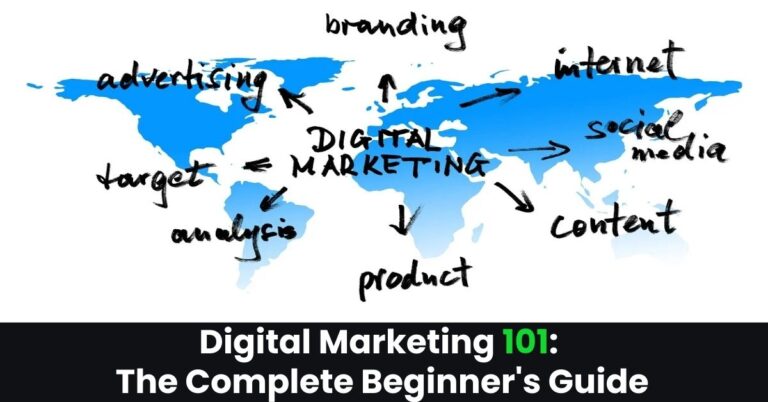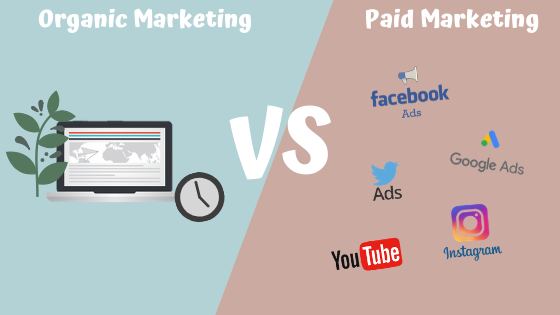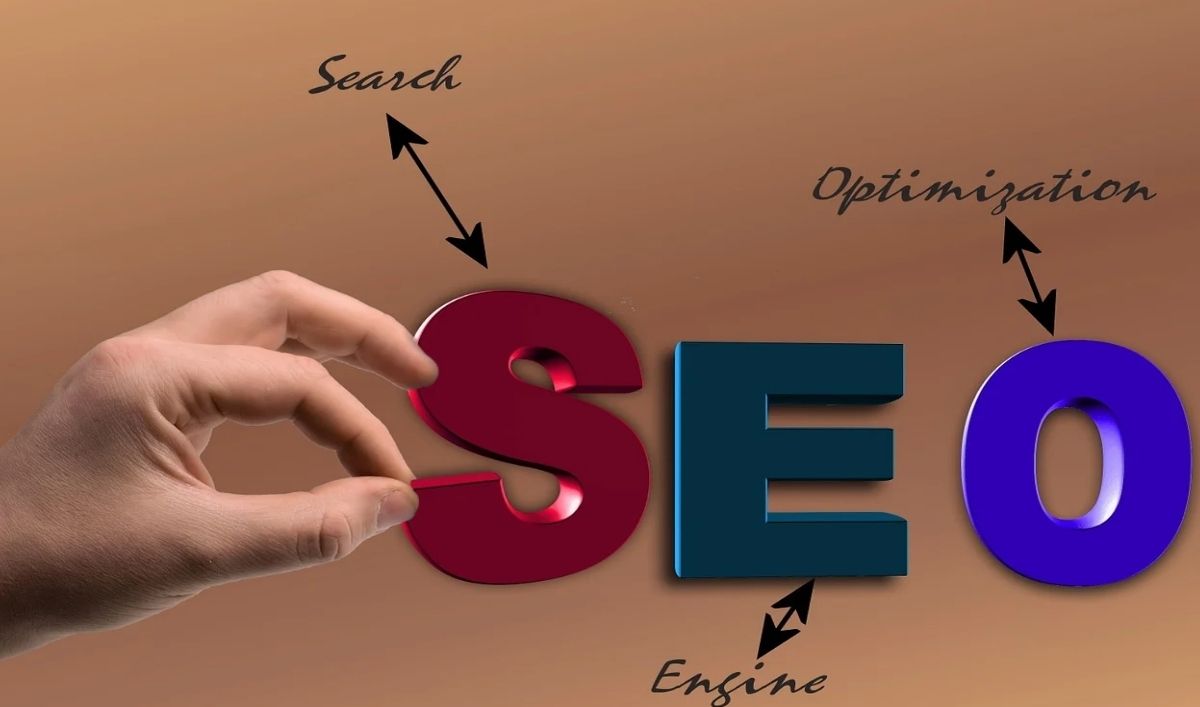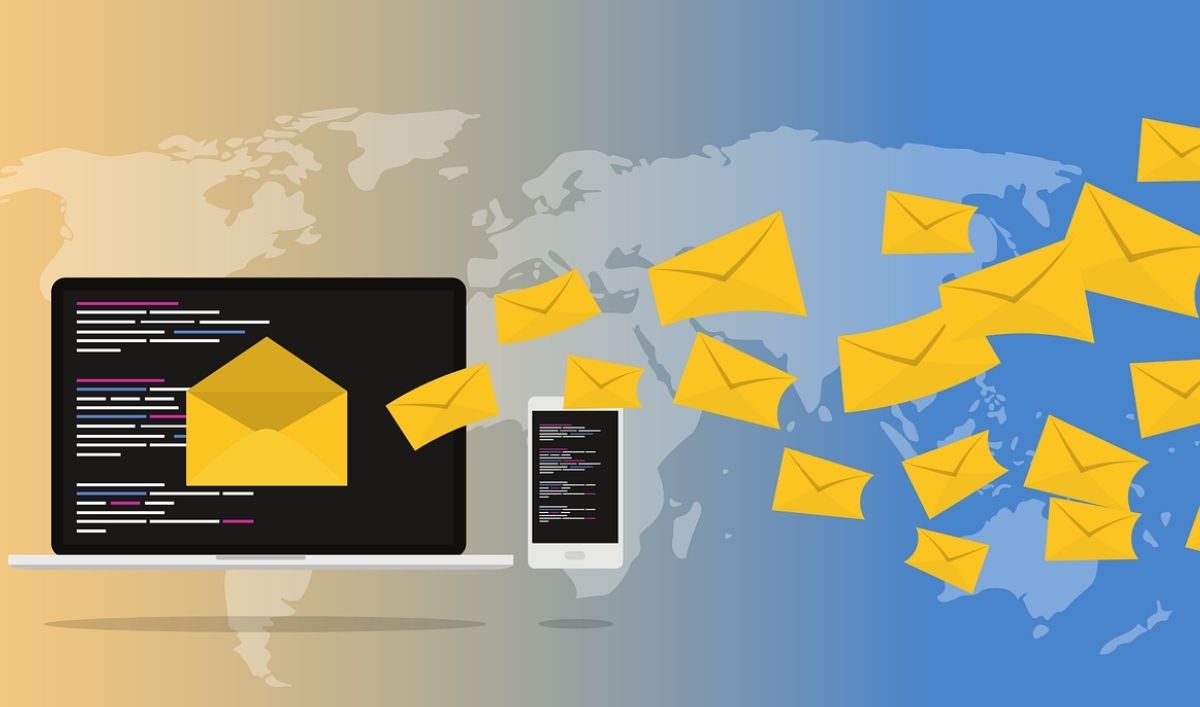Digital Marketing For Beginners
If you are asking yourself how to make money online but are confused by all the advice available, you are not on your own. The majority of beginners fail because they begin with the wrong concepts. Internet marketing is not all about putting things on social media or advertising—it’s about using efficient techniques to get in front of the right people at the right time.
In this guide, we will break down what digital marketing is, its primary forms, and seven core strategies you can implement to develop your brand, reach customers, and generate revenue.
So, let’s get started.
What is Digital Marketing?
Traditional marketing relied on television commercials, billboards, and newspaper ads—methods that were expensive and difficult to track. Online marketing, on the other hand, employs the internet as a means of reaching customers through mediums like social media, search engines, and email.
Think about your last online purchase. Maybe you clicked on a sponsored ad on Instagram, viewed a YouTube video, or googled for ideas. That’s digital marketing at work. Digital marketing is different from traditional advertising because it allows business owners to track user engagement, optimize strategies, and scale efficiently.
Success, however, takes time. The best digital marketing pros test, analyze, and refine their approach over time. If you’re willing to put up with a few mistakes, digital marketing can become a high-revenue-generating skill that will earn you money for a lifetime.
Paid vs. Organic Marketing
There are two forms of digital marketing: paid and organic.
- Paid Marketing: It involves posting ads on social media websites including Facebook, Instagram, YouTube, and Google. You can also pay for influencers to promote your product. It is fast at giving returns but requires investment. KPI measures include clicks, conversions, and ROI.
- Organic Marketing: It’s the opposite of paid marketing. It’s a method of building your brand through unpaid sources including blogging, social media posting, and search engine optimization (SEO). Organic marketing is a slow process but one that will have lasting impacts through establishing credibility and trust with your audience.
Both options have pros and cons, but consistency is what’s most important. Whether you advertise or focus on organic growth, your goal is to keep showing up for your audience.
The 7 Main Digital Marketing Strategies
In the rapidly evolving digital landscape, leveraging the right marketing strategies is essential for businesses aiming to thrive online. With a solid understanding of the basics, let’s explore seven crucial digital marketing strategies and how they can catapult your business to success.
Search Engine Optimisation (SEO)
SEO is the backbone of digital marketing. It’s the art and science of optimizing your website to rank higher in search engine results pages (SERPs). When someone searches for terms like “best workout apps” or “make money online,” businesses with optimized content appear at the top.
Key elements of SEO include:
Keyword Research: Identifying and targeting the right keywords that your audience is searching for.
Quality Content: Creating informative, engaging, and value-driven content that addresses user intent.
User Experience: Ensuring your website is fast, mobile-friendly, and easy to navigate.
By implementing SEO effectively, businesses can enjoy sustained organic traffic for months or even years.
Content Marketing
Content marketing revolves around producing valuable, relevant content to attract and retain an audience. This strategy not only builds trust but also positions your brand as an authority in your niche.
Take inspiration from:
MrBeast: By creating viral YouTube videos, he engages millions while subtly promoting his chocolate brand.
Red Bull: Their high-energy sports videos not only entertain but also reinforce their adventurous brand image.
Effective content marketing includes blog posts, videos, infographics, podcasts, and more. The key is to understand your audience’s pain points and offer solutions through your content.
Email Marketing
In an age dominated by social media, email marketing remains one of the most effective digital marketing strategies. Unlike social media messages, emails land directly in your audience’s inbox, making them highly personal and impactful.
Top email marketing tactics:
Personalization: Tailor emails based on user preferences and behavior.
Exclusive Offers: Provide value through discounts, early access, and loyalty rewards.
Automation: Use tools to send timely, relevant messages based on triggers.
Brands like Nike excel at this, offering customized email campaigns that build loyalty and drive conversions.
Social Media Marketing
Social media platforms like Instagram, TikTok, and Facebook have transformed the way brands connect with their audience. These platforms enable businesses to build communities, engage directly with customers, and showcase their products or services.
Successful campaigns include:
Apple’s #ShotOniPhone: This campaign encouraged users to share their best iPhone photos, resulting in massive engagement and free advertising.
Gymshark: Partnering with fitness influencers has helped them create authentic, relatable content that resonates with their audience.
To excel in social media marketing, focus on consistency, authenticity, and leveraging trends to stay relevant.
Data and Analytics
In digital marketing, data is king. Analytics tools provide valuable insights into what’s working and what needs improvement, allowing businesses to refine their strategies.
Top tools and examples:
Google Analytics: Tracks website visits, user behaviour, and conversion rates.
Social Media Analytics: Measures engagement, reach, and click-through rates.
Netflix’s AI: By tracking user behaviour, Netflix recommends shows, keeping subscribers engaged and satisfied.
Data-driven decisions ensure that your marketing efforts are efficient and effective, maximizing ROI.
Affiliate Marketing
Affiliate marketing is a performance-based strategy where businesses reward affiliates for driving traffic or sales. It’s an excellent way to earn passive income while promoting products or services you believe in.
Why affiliate marketing works:
Low Investment: No need to create a product; simply refer customers.
High Earning Potential: Some affiliates earn six figures monthly by promoting high-converting products.
Multiple Channels: Use blogs, YouTube, and social media to drive traffic through affiliate links.
If done right, affiliate marketing can become a reliable income stream with minimal upfront effort.
Bonus AI Strategy to Make Money Online
Artificial intelligence (AI) is revolutionizing online marketing by using automation and optimizing campaigns. The Velocity Profits AI Marketing Course will teach you how you can leverage AI to build a profitable online business with minimal effort.
This system, created by Chris Reader, simplifies affiliate marketing using AI-powered automation and untapped traffic sources. It’s perfect for beginners who wish to make money online without requiring technical skills or on-camera experience.
Start your AI-powered digital marketing now! Enroll in the Velocity Profits Bonus AI Strategy and unlock the power of automation for online success.
Sign up today: https://velocityprofits.com/aff.php?id=ZVM7tCydecka&pg=pl1-763ed
Influencer Marketing
Influencer marketing leverages the power of trusted social media personalities to promote your brand. Instead of traditional ads, you collaborate with influencers who have established trust with their followers.
Benefits of influencer marketing:
Authenticity: Influencers create relatable and genuine content.
High Engagement: Their followers are more likely to engage with your product.
Diverse Reach: Target niche audiences through specific influencers.
For instance, beauty brands often partner with makeup artists on Instagram, while tech companies collaborate with YouTube reviewers to showcase new gadgets.
Conclusion
Digital marketing has unlimited potential, but there’s a need for consistency, persistence, and experimentation. It doesn’t matter whether you choose SEO, content marketing, social media, or ads, as long as you stay committed and keep tweaking your strategy.



![What is an effective digital marketing strategy?:[Gigde]](https://duws858oznvmq.cloudfront.net/Effective_Digital_Marketing_Strategy_d9152a4f6b.webp)






